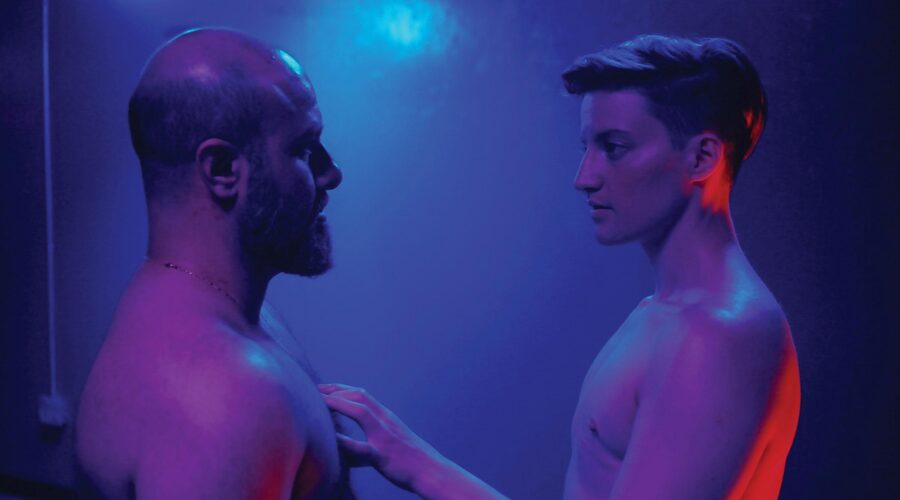“Past and present collide when an Iranian American trans man time-travels through an LGBTQ+ archive on a dizzying and erotic quest to unravel his own sexual desires” reads the synopsis for Jules Rosskam’s Sundance-premiering (and Special Jury Award in the NEXT competition-winning) Desire Lines. It’s a hybrid doc that uses a fictional narrative to unbury inconvenient history. (How many of us know the name of the trailblazing author and activist Lou Sullivan, probably the first trans man to publicly identify as gay? Where’s Lou’s biopic?) And an experimental film that features shockingly frank contemporary interviews with trans men – which opens up a Pandora’s Box of questions and conundrums strictly for, and about, queers. (In other words, straight cis folks are welcome to look but don’t touch. Refreshingly, this conversation, for once, isn’t about you.)
So full disclosure: desire as a component of gender is something I can attest to firsthand. As a biological female who presents as such and never felt compelled to transition to male (I’m just fine with my outsides not matching my insides), it was my sexual desire to live my life as a gay bottom decades ago that in fact first led to my gender realization, long before we had terms like “genderqueer.” In other words, the gay rights movement’s insistence on the mantra “it’s who we love not how we fuck” always struck me (along with Rosskam it seems) as not only a kowtowing to straights, a puritanical plea designed to garner mainstream acceptance, but flat-out wrong.
My own sense of self occurred not when I started “feeling like a boy” (I just assumed all girls felt like boys) or even when I began falling for boys (so were all the straight cis teen girls around me). No, only when I moved to NYC and first saw gay guys engaged in public displays of affection did I think, “Eureka! I want that!”
And yet my desire not to transition has likewise meant that I’ve been going stealth as a straight chick for decades. (Anaïs Nin’s A Spy in the House of Love always had myriad meanings for me.) Happily so, if I’m to be honest, since my female form allowed me to hook up with the straight, cis hyper-masculine guys I fetishized (as did so many of my cis gay male counterparts, who could only fantasize). Which nevertheless could be viewed as being a sort of Uncle Tom to my community; the same community that includes the many cis gays who once intentionally avoided acknowledging my presence (or dismissed me as a fag hag) when I would summer-vacation in gay meccas like The Pines.
Faced with an oppressive and often downright hostile environment at every turn, what’s a nonbinary person to do?
While Desire Lines provides no answer, it at least acknowledges that that tense relationship to both cis gays and cis straights alike does indeed exist for us. And with sunlight being the best disinfectant, actually offers hope for a clear-eyed trans reframing of our narrative that could eventually spread.
After all, society is, albeit ambivalently, at least acknowledging nonbinary existence (while simultaneously trying to erase us again, of course. Bisexual folks have been there, done that, too).
The days of doctors telling gay trans dudes like Lou Sullivan that they have to be hetero in order to access hormones and surgery are long gone (maybe). And we’re all now familiar – some more grudgingly than others – with the brand new world of genderless pronouns. (Another full disclosure: I still find it a bit grating when cis females and cis males – our well-meaning allies – unnecessarily announce themselves as she/her and he/him, respectively; it once again egocentrically centers cis folks in an important matter that isn’t about them, while simultaneously adding fuel to the culture war fire. That said, I also half-joke that I’m waiting for a “hetero cis ally” flag to fly at the front of the next Gay Pride parade.) Though I’m more bullish now than ever, all I know for sure is that I’m still uncertain about our collective future. As is the film that prompted me to ponder.
Then again, the desire to have all the concrete answers is the same binary mode of thinking that Desire Lines exists to combat.
Desire Lines played the Thessaloniki International Documentary Festival (March 7-17) and is now playing BFI Flare (March 13-24).

